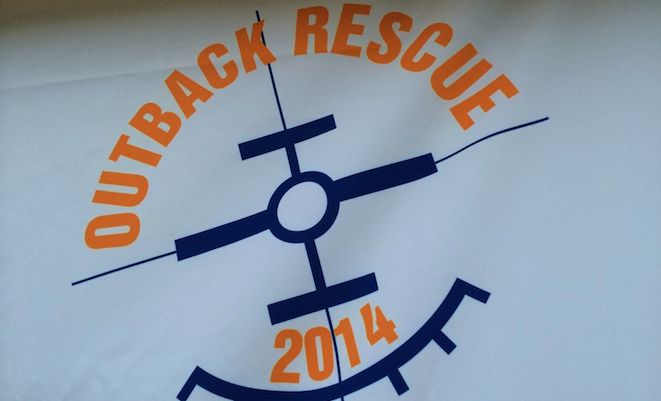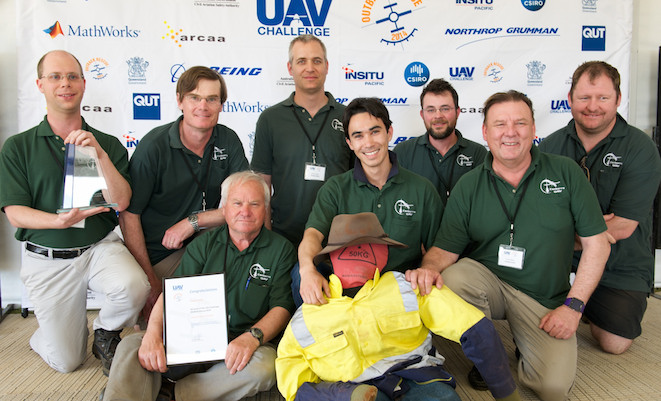
How glad lost tourist Outback Joe must have been when an unmanned aerial vehicle (UAV) dropped a 500ml water bottle within 2.6 metres of his desperate grasp near Kingaroy Airport in outback Queensland.
The almost centimetre perfect drop – the next best attempt to deliver rations to this distressed hiker dropped the water bottle more than 20 metres away, too far for his feeble frame to reach – made no difference however to Outback Joe’s health.
He was a dummy. And the scenario was not one of life and death but part of the UAV Challenge – Outback Rescue, where teams competed in a rescue operation using UAVs.
Thanks in large part to the accurate delivery of the water bottle the CanberraUAV team – a group of aviation hobbyists – headed the field and took home the $50,000 winner’s cheque.
“It’s been a three and a half year journey for us,” CanberraUAV team manager Stephen Dade said in a statement.
“We almost won the prize in 2012, but just missed out. It’s great that we finally completed the mission.”

Professor Jonathan Roberts from the Queensland University of Technology’s (QUT) faculty of science and engineering said the competition highlighted the search-and-rescue capabilities of UAVs.
“We’re not aware of anyone else successfully using cost-effective UAVs for sophisticated search and rescue purposes such as this,” Prof Roberts, who co-founded the event and was its head judge, said.
“The fact that hobbyists have proved they can build robotic aircraft capable of performing search-and-rescue missions gives hope that, one day, very cheap aircraft systems can be used widely by the emergency services and volunteers.”
There were 16 teams in the competition, which included representatives from the United States, France, Canada, the Netherlands and Singapore among other countries.
They had to build their own UAV, conduct a fully automated takeoff and landing, search for Outback Joe and drop a water bottle. Teams also had to answer pre-mission questions from judges, with points awarded for their performance.
Four teams successfully completed the mission.
The event was hosted by Queensland University of Technology and the CSIRO.
















John Kersnovski
says:Its great to hear that Outback Joe has finally been saved. There have been many attempts and a similar number of failures but there have also been a lot of learning’s and Im sure we now have a greater understanding of autonomous systems, weather and aviation.
When the task was originally set we didn’t realise how difficult it would be but like all pioneering ventures it would not have happened if we hadn’t taken the bit between our teeth and did our risk analyses and planned for this day.
Congratulations to Jonathon and the whole team over the years on that shared vision……am also remembering our late companion Rod Walker and his tireless efforts with this event as well.
Lets move forward with new challenges and convert the results now into reality as additional support for the mantle of care for our incredible outback.
John Kersnovski